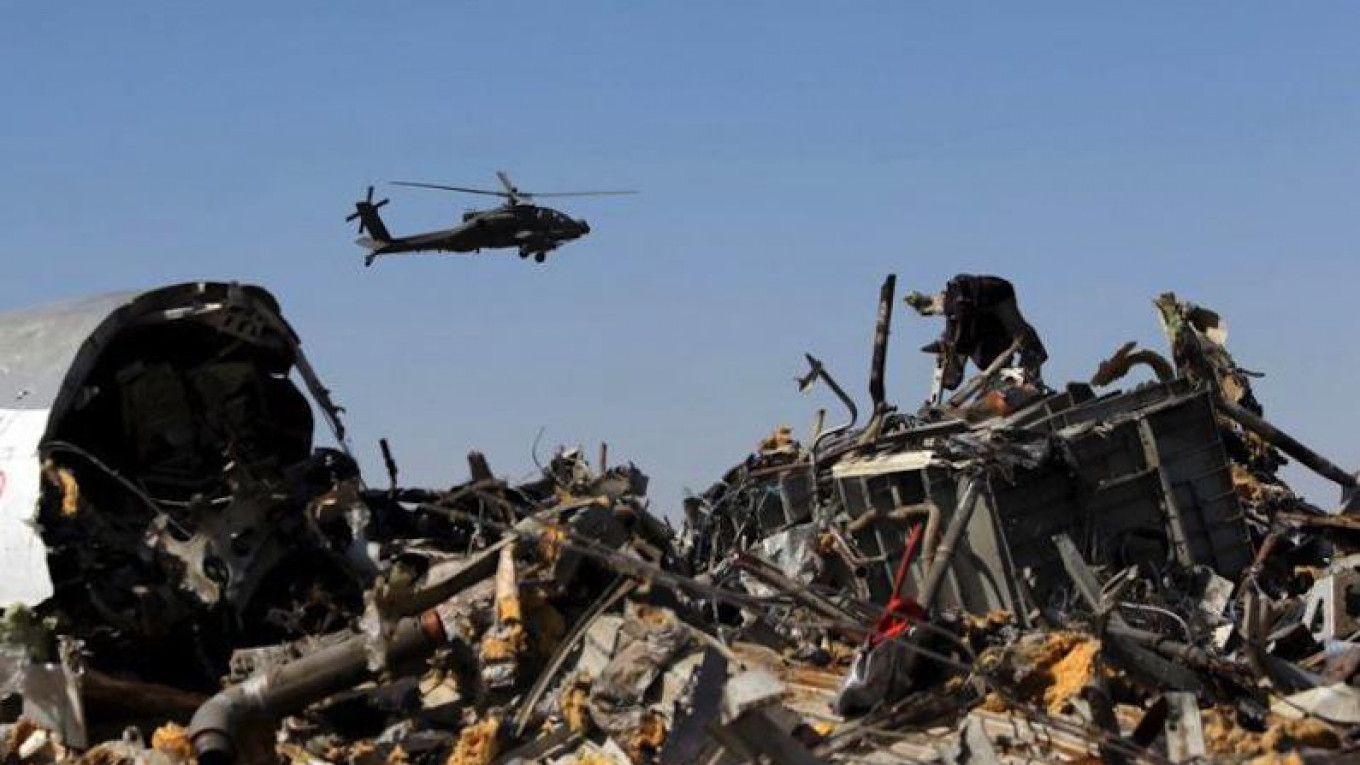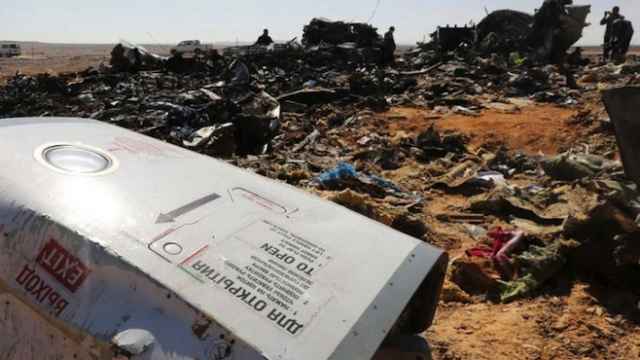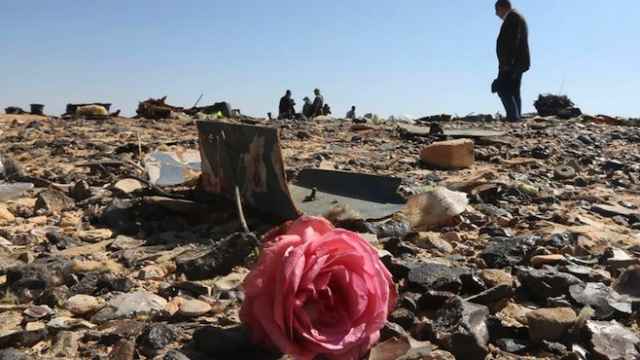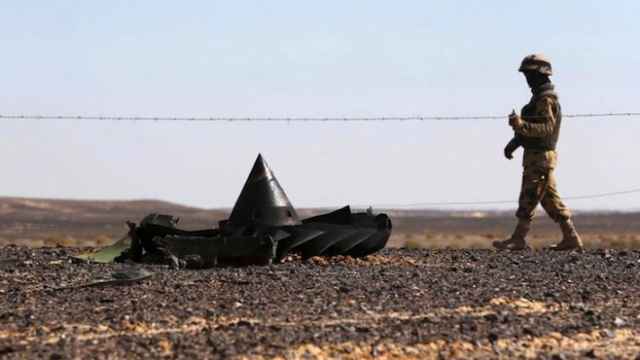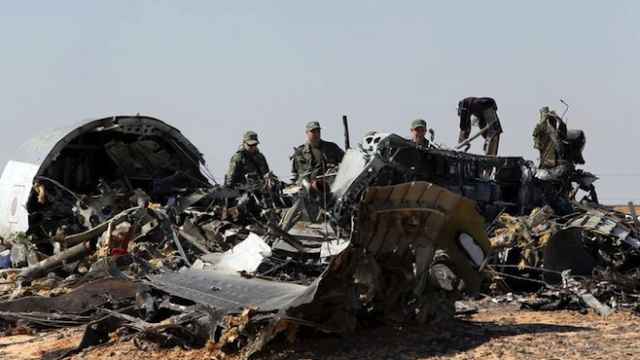International investigators have confirmed that the Russian passenger jet which crashed over Egypt's Sinai Peninsula was downed by a bomb, the Kommersant newspaper reported Tuesday.
Metrojet Flight 9268, which was traveling from Egypt's Sharm
el-Sheikh to St. Petersburg's Pulkovo Airport, crashed on Oct. 31,
2015, killing all 224 people on board.
An investigation, conducted by an international team of aviation experts, found that an explosion
originating in the plane's oversized baggage
compartment ripped through the fuselage 22 minutes after take-off,
Kommersant reported, citing a source close to the investigation.
A small bomb, equipped with a timer and a barometer, was triggered
as the plane climbed to just over 10,000 meters. The explosion caused
the tail of the plane to come away, sending the aircraft into a
sudden nosedive. The majority of passengers died in the air from the
sudden change in air pressure, Kommersant reported.
The head of Russia's Federal Security Service (FSB), Alexander
Bortnikov, announced in November 2015 that traces of explosives had
been found on the downed Airbus A321 wreckage and passengers'
belongings.
FSB experts believed that a homemade bomb capable of bringing down
the plane would have needed explosive power equivalent to 1 kilogram
of TNT, Bortnikov said.
Russian President Putin linked the attack to Russia's expanding role in the Syrian conflict, declaring, “we will find the terrorists anywhere on earth and punish them.”
The Islamic State terrorist organization claimed responsibility
for the attack on the day of the crash, later publishing alleged
pictures of the bomb in their group magazine.
Egyptian officials were initially quick to deny a terrorist link,
dismissing Islamic State claims as “propaganda.” Egyptian
President Abdel Fattah el-Sisi later admitted in February 2016 that a
bomb had brought down the aircraft, claiming that those responsible
had wanted to target Russian-Egyptian relations.
The Kremlin banned all flights between Russia and Egypt in the
wake of the attack, citing safety concerns. Travel links have not
been restored, despite offers from the Egyptian authorities to build
a new terminal for Russian planes.
The Islamic State is a terrorist organization banned in Russia.
A Message from The Moscow Times:
Dear readers,
We are facing unprecedented challenges. Russia's Prosecutor General's Office has designated The Moscow Times as an "undesirable" organization, criminalizing our work and putting our staff at risk of prosecution. This follows our earlier unjust labeling as a "foreign agent."
These actions are direct attempts to silence independent journalism in Russia. The authorities claim our work "discredits the decisions of the Russian leadership." We see things differently: we strive to provide accurate, unbiased reporting on Russia.
We, the journalists of The Moscow Times, refuse to be silenced. But to continue our work, we need your help.
Your support, no matter how small, makes a world of difference. If you can, please support us monthly starting from just $2. It's quick to set up, and every contribution makes a significant impact.
By supporting The Moscow Times, you're defending open, independent journalism in the face of repression. Thank you for standing with us.
Remind me later.



